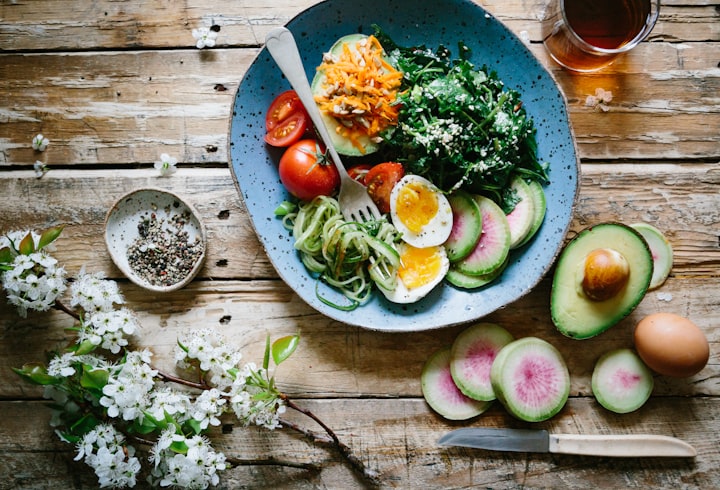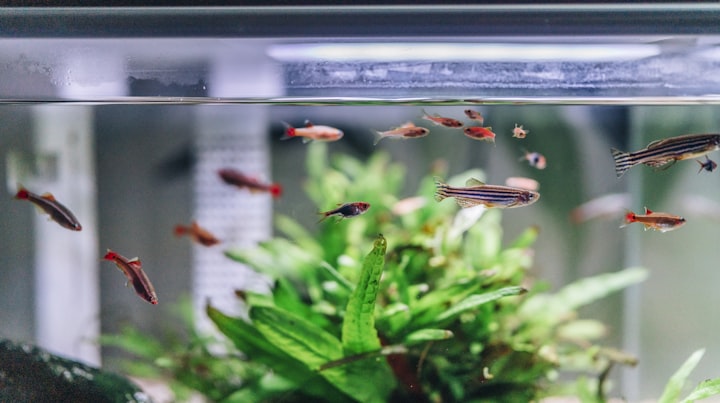Achieving Ketosis with a Keto Diet: The Ultimate Guide
If you're looking for a way to lose weight or improve your health, a keto diet may be the perfect solution. A keto diet is a low-carbohydrate diet that puts your body into a state of ketosis, where it's burning fat for energy instead of carbohydrates. In this guide, we'll walk you through the basics of a keto diet, including what it is, the benefits, the foods to eat, and tips for starting the diet.

What is ketosis?
Ketosis is a metabolic state in which your body is burning fat for energy instead of carbohydrates. When you eat a diet that is low in carbohydrates and high in fat, your body enters a state of ketosis. In this state, your body uses ketones instead of glucose to fuel your body. Ketones are molecules that are produced by the breakdown of fat in the liver.
Ketosis is a natural process that occurs when your body is deprived of carbohydrates. It's your body's way of using stored fat for energy instead of glucose. Ketosis has been used for thousands of years by people all over the world for weight loss and other health benefits.
The benefits of a keto diet
A keto diet has many potential health benefits, including weight loss. A keto diet can help you lose weight by putting your body into a state of ketosis, where it burns fat for fuel instead of carbs. This can help you lose weight quickly and effectively.
In addition to weight loss, a keto diet can also help improve your energy levels, improve your mental focus, reduce inflammation, and even improve your cholesterol levels. It can also help reduce your risk of developing diabetes and other chronic illnesses.
How a keto diet works
A keto diet works by limiting the amount of carbohydrates you eat and increasing the amount of fat in your diet. By reducing your carb intake and increasing your fat intake, your body will be forced to switch from using glucose for energy to using ketones for energy.
When you limit your carb intake, your body will begin to break down fat to use for energy. This process produces ketones, which are molecules that your body can use for energy instead of glucose. As your body uses ketones for energy, it will enter a state of ketosis.
Foods to eat on a keto diet
When you're on a keto diet, it's important to make sure you're eating the right foods to keep your body in a state of ketosis. Here are some of the best foods to eat on a keto diet:
• Meat: Beef, pork, chicken, turkey, and other lean meats are great sources of protein and healthy fats.
• Fish: Salmon, tuna, mackerel, and other fatty fish are high in omega-3 fatty acids and can help keep your body in a state of ketosis.
• Eggs: Eggs are a great source of protein and healthy fats.
• Low-carb vegetables: Broccoli, cauliflower, spinach, and other low-carb vegetables are packed with vitamins and minerals and can help keep you full.
• Nuts and seeds: Almonds, walnuts, chia seeds, and other nuts and seeds are a great source of healthy fats and fiber.
• Avocados: Avocados are a great source of healthy fats and fiber.
• Dairy: Dairy products like cheese, yogurt, and butter are high in healthy fats and can help you stay full.
• Oils: Coconut oil, olive oil, and other oils are a great source of healthy fats and can help keep your body in a state of ketosis.
Foods to avoid on a keto diet
When you're on a keto diet, it's important to avoid certain foods that can kick you out of ketosis. Here are some of the foods to avoid on a keto diet:
• Sugary foods: Candy, soda, fruit juice, and other sugary foods should be avoided as they can kick you out of ketosis.
• Starchy vegetables: Potatoes, corn, and other starchy vegetables are high in carbs and should be avoided.
• Grains: Wheat, oats, rice, and other grains are high in carbs and should be avoided.
• Legumes: Beans, lentils, and other legumes are high in carbs and should be avoided.
• Alcohol: Alcohol is high in carbs and should be avoided.
Tips for starting a keto diet
Starting a keto diet can be overwhelming, but with the right tips and tricks, it can be easier than you think. Here are some tips for starting a keto diet:
• Plan ahead: Meal planning is key to success on a keto diet. Make sure to plan out your meals and snacks ahead of time to make sure you're sticking to your diet.
• Track your macros: Tracking your macros (carbohydrates, protein, and fat) is an essential part of a keto diet. This will help you make sure you're getting the right amount of each macronutrient.
• Drink plenty of water: Staying hydrated is important for your health and can help you stay in ketosis.
• Get plenty of sleep: Getting enough sleep is essential for your health and can help you stay in ketosis.
• Exercise: Exercise can help you stay in ketosis and can also help improve your overall health.
Recipes for a keto diet
One of the best parts of a keto diet is that it's full of delicious and easy recipes. From breakfast to dinner, here are some of the best recipes for a keto diet:
• Breakfast: Keto egg muffins, omelets, and avocado toast are great options for breakfast.
• Lunch: Keto salads, soups, and sandwiches are easy and delicious lunch options.
• Dinner: Keto pizzas, casseroles, and stir-fries are great dinner options.
• Snacks: Keto smoothies, energy bites, and cheese chips are great snacks to have on hand.
Common mistakes to avoid on a keto diet
When starting a keto diet, it's important to avoid common mistakes that can kick you out of ketosis. Here are some of the most common mistakes to avoid on a keto diet:
• Not tracking your macros: Tracking your macros (carbohydrates, protein, and fat) is essential for success on a keto diet.
• Eating too many carbs: Eating too many carbs can kick you out of ketosis.
• Not eating enough fats: Fats are essential for a keto diet, so make sure you're getting enough.
• Not getting enough sleep: Getting enough sleep is essential for your health and can help you stay in ketosis.
• Not drinking enough water: Staying hydrated is important for your health and can help you stay in ketosis.
Exercise and a keto diet
Exercise is an important part of any diet, and a keto diet is no exception. Exercise can help you stay in ketosis and can also help improve your overall health. Here are some of the best exercises for a keto diet:
• Strength training: Strength training can help you build muscle and burn fat.
• Cardio: Cardio exercises like running, walking, and biking can help you burn fat and stay in ketosis.
• High-intensity interval training (HIIT): HIIT workouts are short, intense workouts that can help you burn fat and stay in ketosis.
• Yoga: Yoga is a great way to stay active and can help reduce stress.
Supplements for a keto diet
Supplements can be a great way to make sure you're getting all the nutrients you need on a keto diet. Here are some of the best supplements for a keto diet:
• MCT oil: MCT oil is a type of fat that can help boost your energy and keep you in ketosis.
• Exogenous ketones: Exogenous ketones can help boost your energy and help keep you in ketosis.
• Electrolytes: Electrolytes can help prevent dehydration and can help you stay in ketosis.
• Fiber supplements: Fiber supplements can help you stay full and can help keep you in ketosis.
Common questions about a keto diet
Starting a keto diet can be overwhelming, and it's normal to have questions. Here are some of the most common questions about a keto diet:
• How much weight can I expect to lose?
Weight loss on a keto diet will vary depending on your age, gender, and activity level. Generally, people can expect to lose between 1-2 pounds per week.
• How long does it take to get into ketosis?
It usually takes between 1-2 weeks to get into ketosis. It can take longer or shorter depending on your age, gender, and activity level.
• How do I know if I'm in ketosis?
There are several ways to test for ketosis, such as urine strips, breath tests, and blood tests.
• Are there any side effects?
The most common side effects of a keto diet are fatigue, headaches, and nausea. These side effects usually go away after a few days.
Conclusion
A keto diet can be a great way to lose weight and improve your health. With the right tips and tricks, it can be easier than you think. In this guide, we've covered the basics of a keto diet, including what it is, the benefits, foods to eat and avoid, tips for starting the diet, recipes, supplements, and common questions. With this information, you're now ready to start your keto journey and reap the benefits of a keto diet.
About the Creator
goddy igbinosa
I am an affiliate marketer and Investor, website designer.






Comments
There are no comments for this story
Be the first to respond and start the conversation.